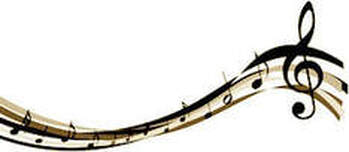 Playing beyond the barlines is an invitation for tapping into an intuitive experience with music …. when the heart leads over the dictates of the mind. Barlines are markers in musical notation that imply structure and order for music making. I first really learned about crossing the barlines through my work as a music therapist with people who were dying. The people, their challenges and triumphs, opened my heart in ways I could not have predicted; nothing and everything mattered with the utmost intensity. The music served to address their physical and emotional experiences. Physically, that may have included my improvisational guitar playing that connected with someone’s pain and moved that individual toward a little more ease or softening of that pain. Emotionally, that may have included singing a song together that gave pause and touched the soul. Moving beyond the barlines taught me the power of music to transcend any given moment. A Note About the Music
In exploring music beyond the barlines, I am not proposing that all conventions of music making be abandoned, such as rhythm and pulse. In using music to help others, there is no way around the fact that practice time must be put in to hone your musical skill. I am suggesting that the true power in music is when the rules are not front and center, when sound and emotion and intuition are given full range to dance. Effortless Mastery In the book, Effortless Mastery, Kenny Werner gives a road map to playing music note-by-note, with intention and attention. He encourages letting go of ego and helping the notes to flow effortlessly; to dropping into the experience where “every note I play is the most beautiful sound I’ve ever heard” (p. 57). I especially appreciate the way Werner brings up the impact of fear on music. “In fear, we expect; with love, we accept”(p. 57). Fear can cause us to feel gripped and can come from a place that is riddled with shame or fear of embarrassment. What we know about shame is that it can make an experience overwhelming and encourage self-criticism. “Fear-based listening is trying to play with others while being preoccupied with yourself” (Werner, p. 71). Fear can cause us to grasp tightly to a sound that wants to flow freely. Loosening the grip on what is supposed to happen allows room for what can happen. Additionally, when the music is free and effortless, the listener might not be able to articulate why the experience was so moving but will have felt it nonetheless. The subtle path that gets us to this freedom includes intention, presence and attention. Music: A Higher Purpose and Pulling Out all the Stops Werner posits, “Music never dies in terrible times. To the contrary, it flourishes. At those times, the essence of what music can provide really comes through. The music that gives strength to deal with the atrocities of the day, a song that can articulate our pain, the dance that plays at our longing, the poetry that restores for us a moment of tranquility or incites us to riot – that’s what becomes important”. (P. 49) I love the metaphor of “pulling out all the stops.” It refers to playing the organ (think large cathedral, enormous pipes…) with all of the stops pulled out so the fullness of the all the sounds can be played and heard. As we struggle with challenges in our lives and in our troubled country and world, we need to “pull out all the stops” to address divisiveness, hatred, injustice, and along the way to soothe and to heal. It is so important, perhaps now more than ever, to find our way across the barlines of what we think of as music, to allow ourselves to deeply feel each and every note, to use that energy and power to sustain and encourage us on this journey.
0 Comments
Your comment will be posted after it is approved.
Leave a Reply. |
AuthorDr. Barbara Dunn: Archives
May 2021
Categories |


 RSS Feed
RSS Feed